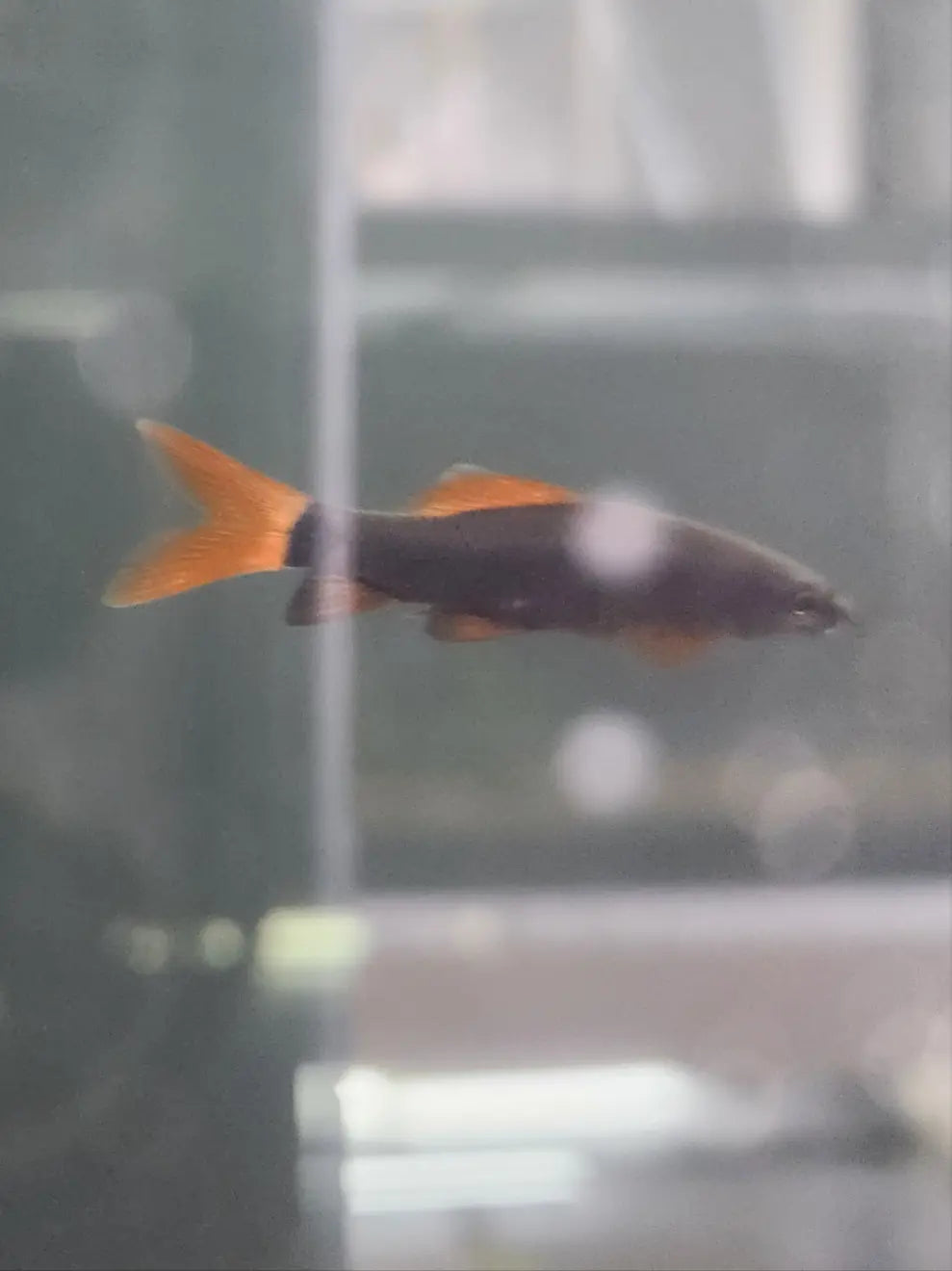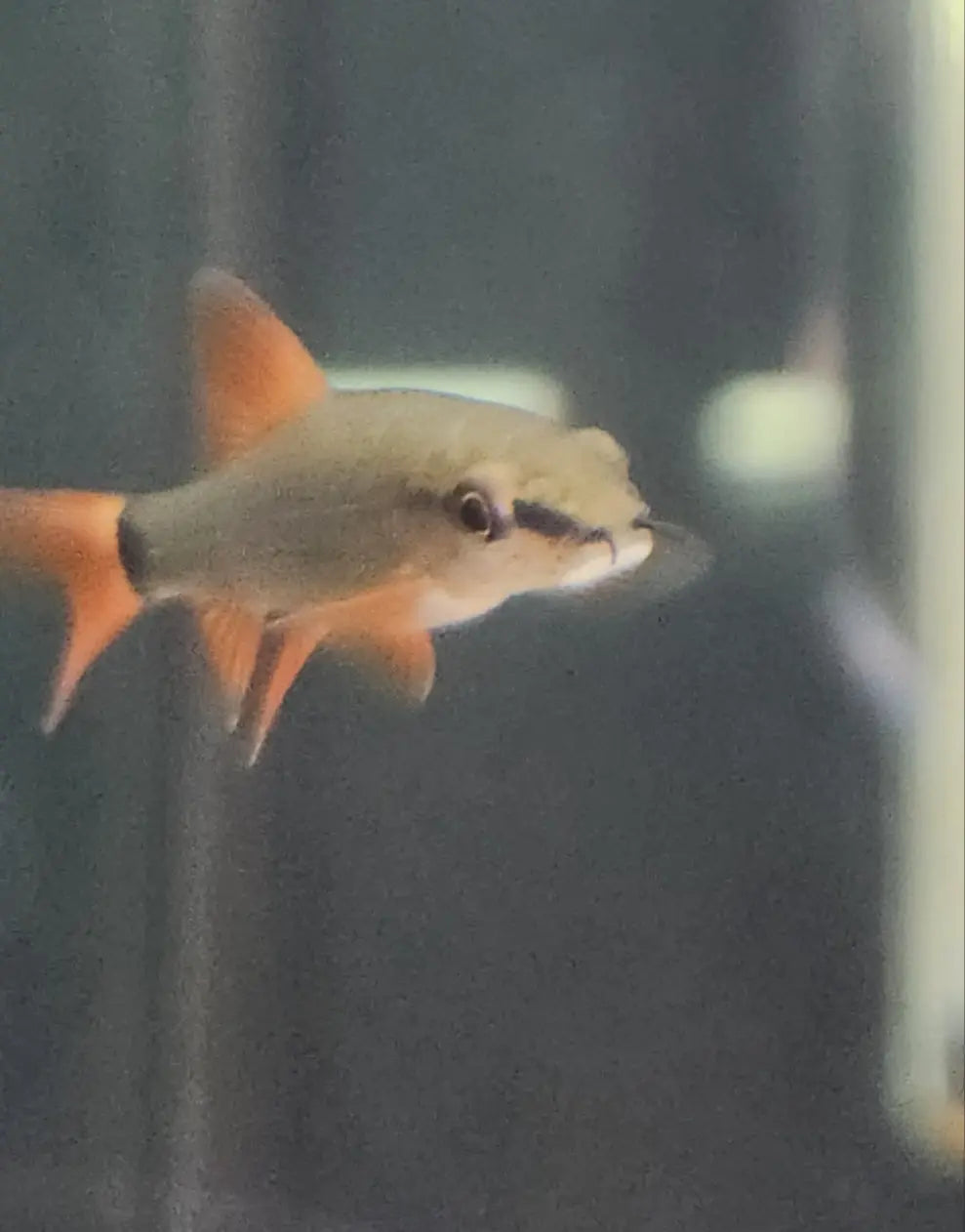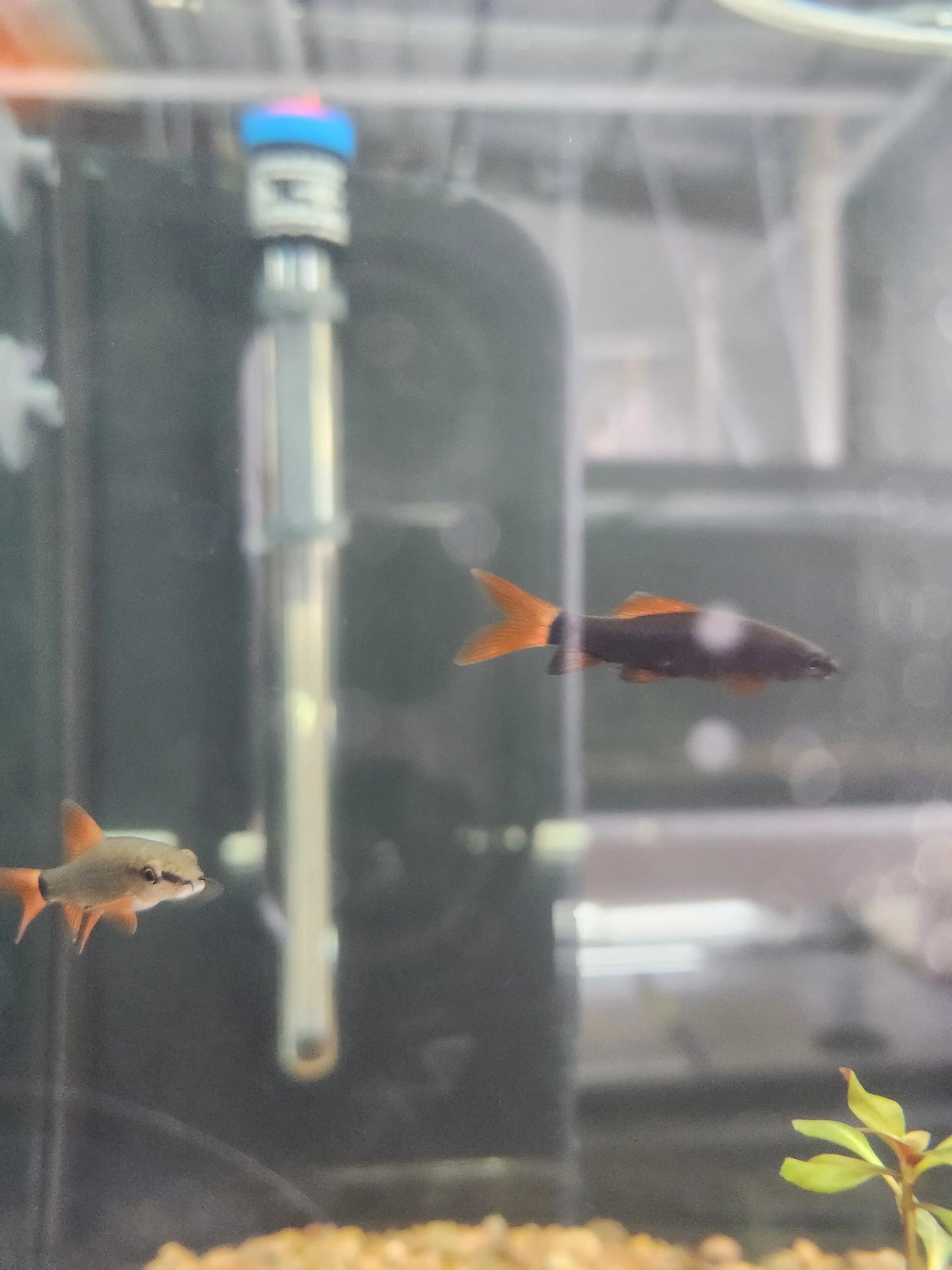Rainbow Shark – Epalzeorhynchos frenatum
Rainbow Shark – Epalzeorhynchos frenatum
35 in stock
Couldn't load pickup availability
Rainbow Shark – Epalzeorhynchos frenatum
Bold, active, and full of color, the Rainbow Shark (Epalzeorhynchos frenatum) is a striking freshwater species known for its jet-black body and vivid red fins. Despite its name, this "shark" is actually a peaceful bottom-dwelling cyprinid that adds energy and contrast to tropical aquariums.
Rainbow Sharks are excellent algae grazers and enjoy exploring caves, driftwood, and smooth substrates. They’re best kept in spacious, well-decorated tanks with good water flow and plenty of hiding places.
Features:
- 🐟 Scientific Name: Epalzeorhynchos frenatum
- 🌎 Origin: Southeast Asia (Thailand, Laos, Cambodia)
- 🌈 Coloration: Deep black body with bright red fins and tail
- 💧 Temperament: Semi-aggressive; territorial toward similar fish
- 🍽️ Diet: Omnivore – algae wafers, pellets, vegetables, and frozen foods
- 🪸 Tank Level: Bottom to mid-level
Recommended Tank Parameters:
- Temperature: 74–80°F
- pH: 6.5–7.5
- KH: 4–12 dKH
- Minimum Tank Size: 40 gallons
- Environment: Spacious tank with caves, rocks, and hiding spots
Behavior & Compatibility:
Rainbow Sharks are territorial toward their own kind and similar species (like Red Tail Sharks). They do best as single specimens or in large aquariums with other active mid-to-top-level fish such as barbs, rainbowfish, danios, and larger tetras. Avoid keeping them with slow-moving or long-finned tankmates.
Frequently Asked Questions (FAQ)
Q: How big do Rainbow Sharks get?
A: Adults reach about 5–6 inches in length.
Q: Are Rainbow Sharks aggressive?
A: They’re semi-aggressive, especially toward similar-looking species. Best kept as a single specimen.
Q: Can they live in a community tank?
A: Yes — they do well with active mid-water fish like barbs, danios, and rainbowfish.
Q: What do Rainbow Sharks eat?
A: They’re omnivores that enjoy algae wafers, sinking pellets, blanched veggies, and frozen foods.
Q: Do Rainbow Sharks clean the tank?
A: They help control algae but should still be fed a balanced diet — they’re not full-time cleaners.





